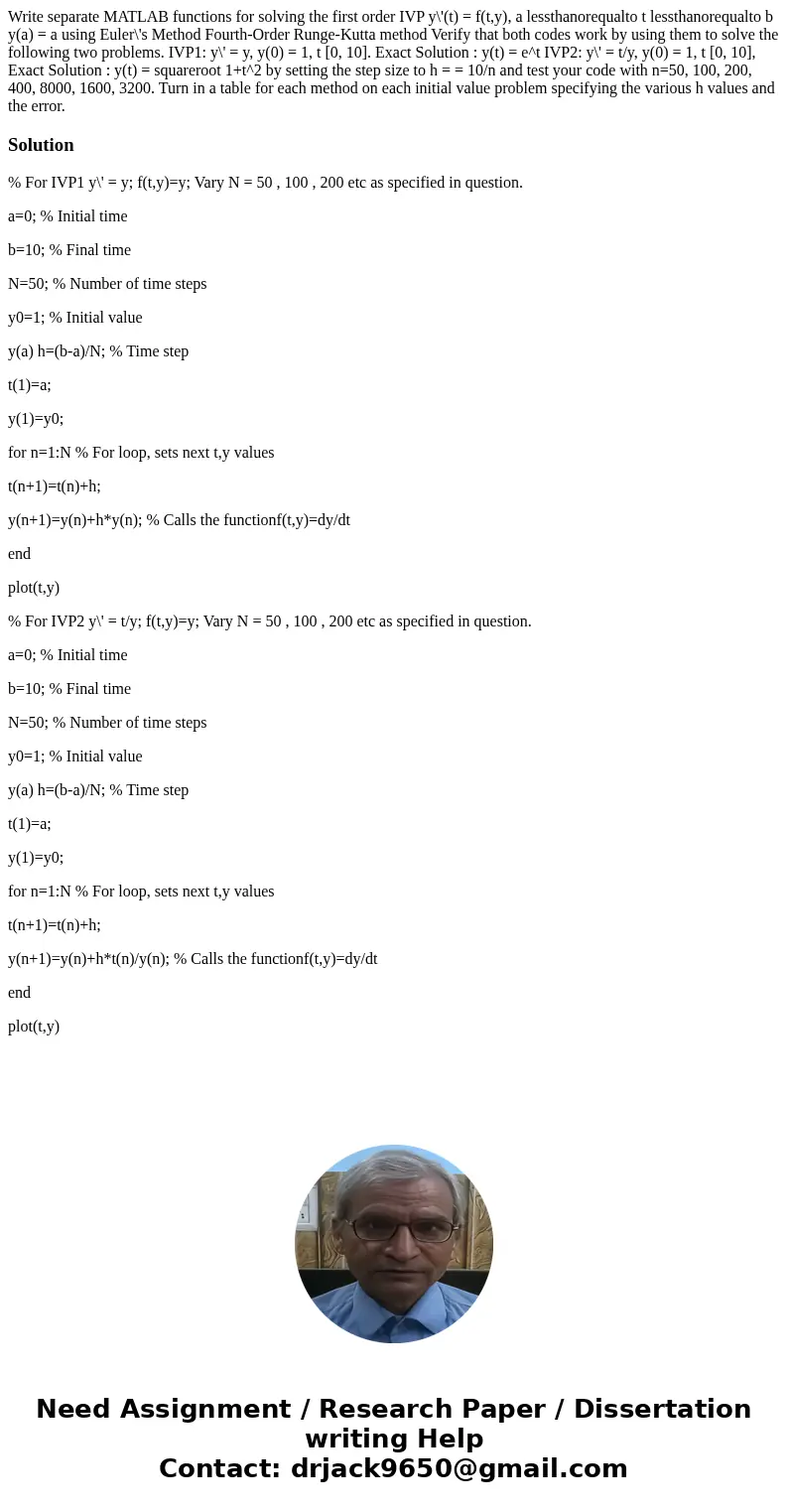Write separate MATLAB functions for solving the first order
Write separate MATLAB functions for solving the first order IVP y\'(t) = f(t,y), a lessthanorequalto t lessthanorequalto b y(a) = a using Euler\'s Method Fourth-Order Runge-Kutta method Verify that both codes work by using them to solve the following two problems. IVP1: y\' = y, y(0) = 1, t [0, 10]. Exact Solution : y(t) = e^t IVP2: y\' = t/y, y(0) = 1, t [0, 10], Exact Solution : y(t) = squareroot 1+t^2 by setting the step size to h = = 10/n and test your code with n=50, 100, 200, 400, 8000, 1600, 3200. Turn in a table for each method on each initial value problem specifying the various h values and the error.
Solution
% For IVP1 y\' = y; f(t,y)=y; Vary N = 50 , 100 , 200 etc as specified in question.
a=0; % Initial time
b=10; % Final time
N=50; % Number of time steps
y0=1; % Initial value
y(a) h=(b-a)/N; % Time step
t(1)=a;
y(1)=y0;
for n=1:N % For loop, sets next t,y values
t(n+1)=t(n)+h;
y(n+1)=y(n)+h*y(n); % Calls the functionf(t,y)=dy/dt
end
plot(t,y)
% For IVP2 y\' = t/y; f(t,y)=y; Vary N = 50 , 100 , 200 etc as specified in question.
a=0; % Initial time
b=10; % Final time
N=50; % Number of time steps
y0=1; % Initial value
y(a) h=(b-a)/N; % Time step
t(1)=a;
y(1)=y0;
for n=1:N % For loop, sets next t,y values
t(n+1)=t(n)+h;
y(n+1)=y(n)+h*t(n)/y(n); % Calls the functionf(t,y)=dy/dt
end
plot(t,y)

 Homework Sourse
Homework Sourse